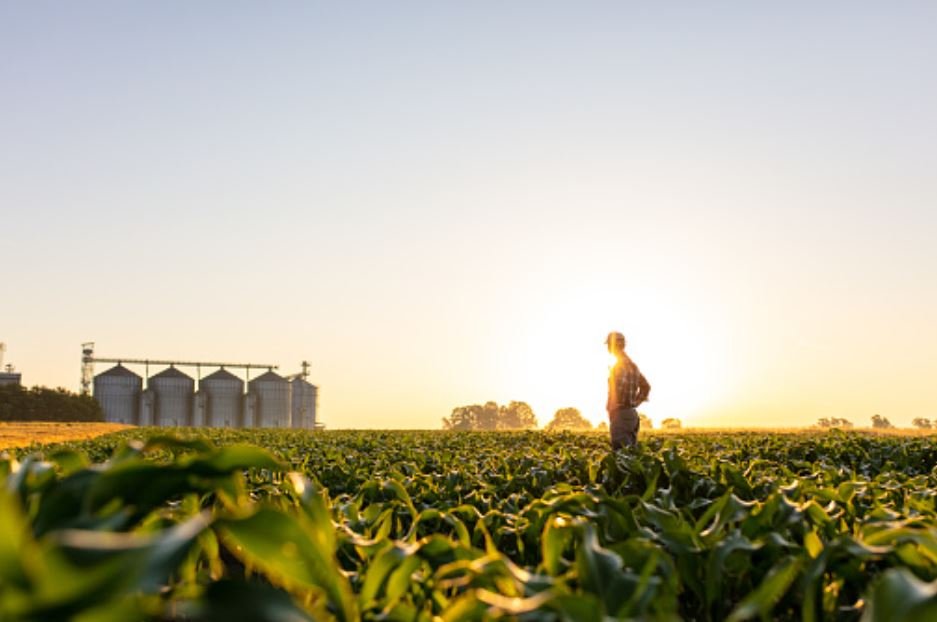Business
Why Is Sustainability an Important Concern for The Agricultural Industry?

Agricultural businesses account for the employment of around 500 thousand people within the UK with farming taking up around half of the world’s habitable land. This land not only provides the habitat for biological species, it is also responsible for over 9 billion tonnes of food each year globally. Forestry, agriculture, and land use significantly impact greenhouse gas emissions. This is something that can be changed if farming and agriculture make changes to the way we grow and farm food. Therefore, for agricultural businesses to survive, they have to increase food sustainability.
Sustainability in agriculture matters as it’s expected that we will see 10 billion people on the planet by 2050, and we need to be able to continue to provide food, even when this is becoming more difficult. Here, we explore the difficulties and examine how Gelponics and other innovations are driving the change the sector needs.
Correctly controlled agriculture can have a positive impact on the planet and bring much-needed biodiversity. However, it can also bring sustainability challenges that need addressing, such as:
- Pollution, poverty, water consumption, and climate change need addressing to meet the demand for sustainable food sources as the world population grows despite the climate changes.
- Pollution from pesticides and fertilisers affects the air and fresh water and causes damage to marine and wildlife essential for the survival of our planet. Around 70% of the world’s water consumption is used by the agriculture industry, harming freshwater systems and water quality. Poverty, which affects three-quarters of the world’s population, is also responsible for many unsustainable agricultural farming decisions worldwide. Government incentives given to those in poorer nations encourage their overproduction of crops to gain subsidies, leading to other producers cutting corners to up production to meet the inevitable lower product prices.
Livestock farming and arable farming practices are also responsible for a large percentage of greenhouse gas production, with livestock producing around 18% of greenhouse gases. Diesel and arable field burning also contribute heavily to climate change issues.
Vertical farming and controlled environmental agriculture is the way forward.
New hydrogel farming methods bring leading sustainable farming substrates that offer future solutions to support agricultural farming.
The use of hydrogel substrates removes the need for traditional soil and vast land areas by using a soil replacement that is truly sustainable and cost-effective. Suitable for use in controlled-temperature warehousing, it is easier for plant-growers to use urban farming and more extraordinary sustainable farming solutions to grow food closer to the communities that eat it and are better for the planet.
These new sustainable substrates offer a 100% natural, biodegradable replacement for peat, coir and rock wool and have benefits that accelerate cultivation and reduce production costs. Crops can be grown in smaller areas, using vertical planting and controlled temperature units, that require less water and improve growing conditions removing the need for fertilisers and soil enhancers.
The rise in urban, metropolitan, and vertical farming is essential to produce sufficient food to meet growing demand whilst reducing the damage that vast growing needs have on the planet.
Crops are cultivated and grown in greenhouse environments with optimum lighting, temperature and food is controlled at all times. This gives opportunities for year-round growing and is well suited to vertical farming, reducing the land footprint required to produce food. Moving food production closer to the consumer reduces the miles from production to plate and enables local communities to become involved directly in producing the food they consume.
The end result?
Vertical farming introduces greater fresh food availability into urban areas and uses less land to achieve greater yields, reducing road miles and air pollution. All of these support better environments and clean air zones and transform lives, whether in a backyard, community garden or commercial facility.
Related article: Climate Change Risk and Response: An Insight
-

 Celebrity4 weeks ago
Celebrity4 weeks agoIs YNW Melly Out Of Jail? What Is The YNW Melly Release Date, Career, Early Life, And More
-

 Sports4 weeks ago
Sports4 weeks agoMore Than Just a Game: How College Sports Can Shape Your Future
-

 Tech3 weeks ago
Tech3 weeks agoAI Software: Transforming the Future of Technology
-

 Tech3 weeks ago
Tech3 weeks agoAll About Com. Dti. Folder Launcher: Features, Benefits, Tips, And More













